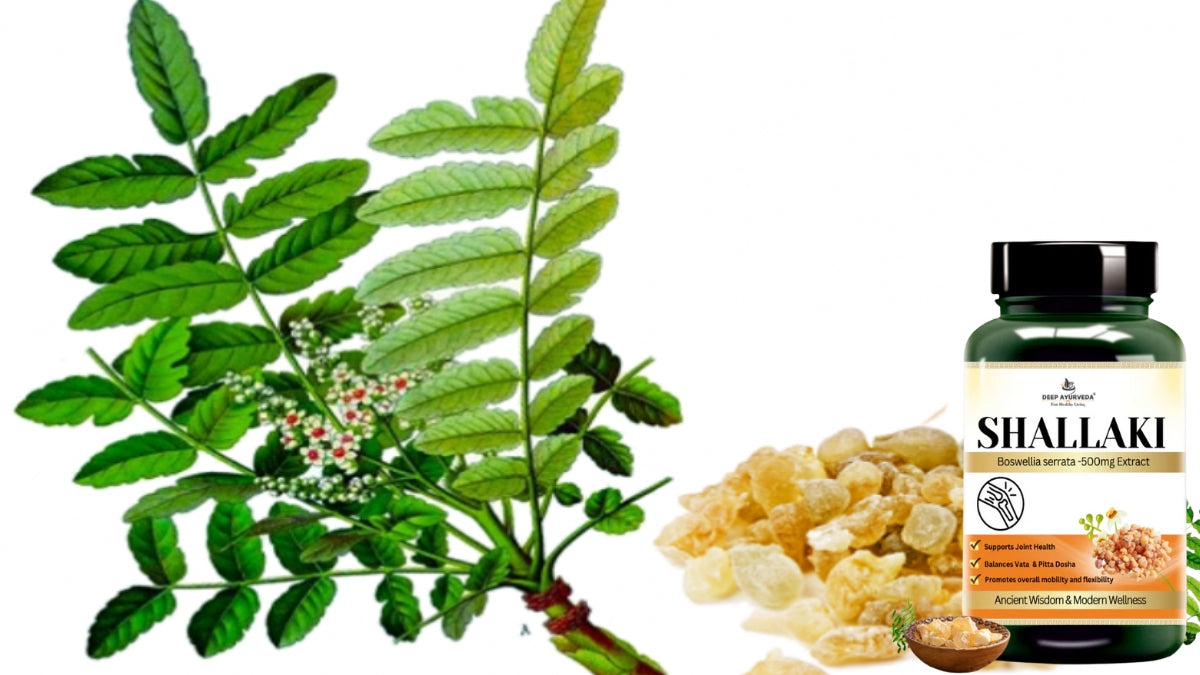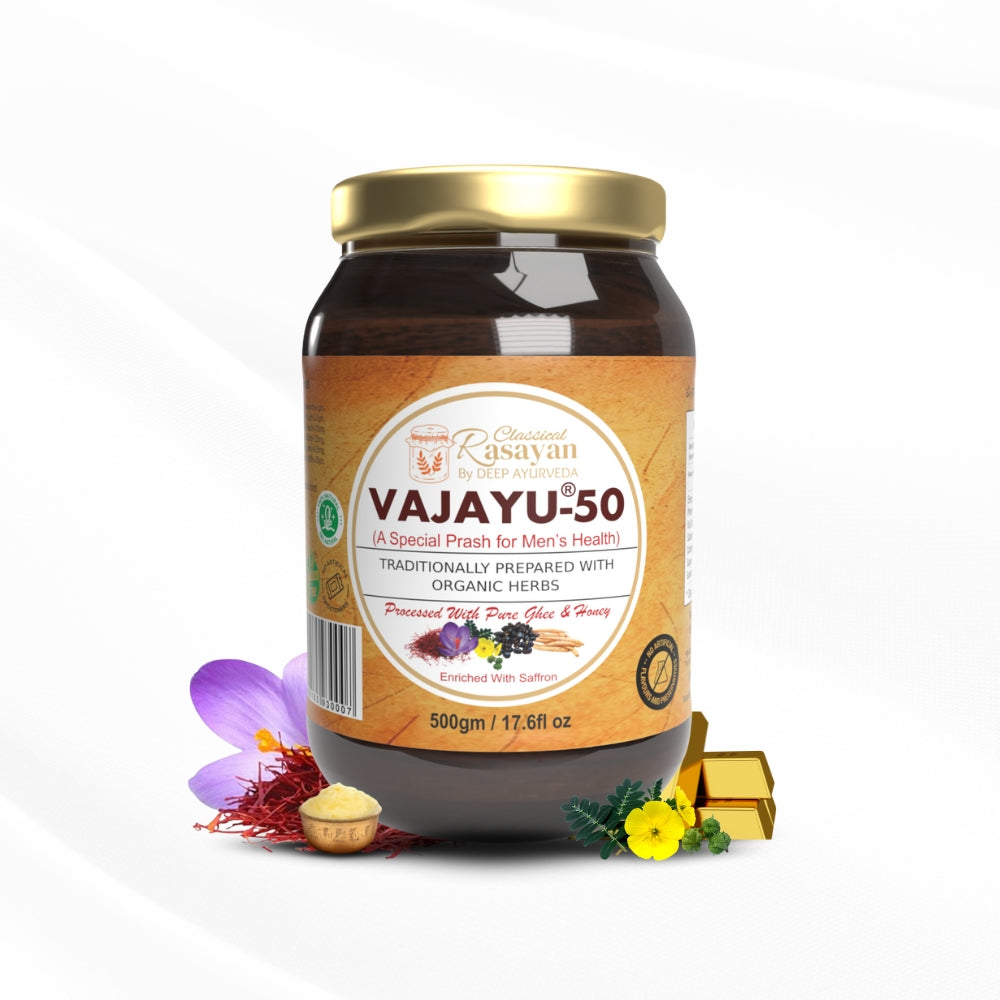
Botanical Name: Mucuna pruriens
Family: Fabaceae
Kapikachhu, also known as Kaunch Beej, is an ancient Ayurvedic herb recognized for its aphrodisiac, neuroprotective, and anti-inflammatory properties. It is a natural source of L-Dopa, a precursor to dopamine, making it highly beneficial for sexual health, neurological disorders (such as Parkinson’s disease), and joint health. Traditionally, Kaunch Beej powder is consumed with milk to enhance its benefits.
Health Benefits of Kapikachhu (Kaunch Beej)
1. Enhances Sexual Health & Fertility
Kapikachhu is a natural aphrodisiac that helps increase libido, sperm count, and motility. It also reduces stress-related infertility by enhancing dopamine levels and promoting overall reproductive health.
How to Use:
-
Take ¼ - ½ teaspoon of Kaunch Beej powder.
-
Mix it with honey or 1 cup of lukewarm milk.
- Consume once or twice a day after meals.
2. Supports Parkinson’s Disease Management
Kapikachhu contains L-Dopa, which helps restore dopamine levels in the brain. This makes it beneficial for managing Parkinson’s disease symptoms like tremors, stiffness, and imbalance.
How to Use:
-
Take ¼ - ½ teaspoon of Kaunch Beej powder.
-
Mix it with 1 teaspoon of honey or lukewarm milk.
- Consume preferably after lunch and dinner.
3. Helps in Arthritis & Joint Pain
Kapikachhu has anti-inflammatory and analgesic properties that help reduce joint pain, swelling, and stiffness, making it effective for managing arthritis and other joint disorders.
How to Use:
-
Take ¼ - ½ teaspoon of Kaunch Beej powder.
-
Mix it with 1 teaspoon of honey or lukewarm milk.
- Consume preferably after lunch and dinner.
4. Regulates Prolactin Levels & Supports Breast Health
Excess prolactin production may increase the risk of breast cancer. L-Dopa in Kapikachhu helps inhibit excessive prolactin production and may aid in preventing abnormal cell growth.
How to Use:
-
Take Kaunch Beej capsules or powder regularly as per the recommended dosage.
- Consult a healthcare provider for personalized guidance.
5. Treats Insect Bites & Skin Irritations
Kapikachhu has Ropan (healing) properties, making it effective in reducing inflammation and itching caused by insect bites.
How to Use (Topical Application):
-
Take ½ - 1 teaspoon of Kaunch Beej powder.
-
Mix it with milk to form a paste.
-
Apply evenly to the affected area and leave it on until symptoms subside.
- Rinse with fresh water.
6. Promotes Wound Healing
Kapikachhu accelerates wound healing, reduces swelling, and restores skin texture due to its Ropan (healing) and Shothahar (anti-inflammatory) properties.
How to Use (Topical Application):
-
Take ½ - 1 teaspoon of Kaunch Beej powder.
-
Mix it with coconut oil or milk to form a paste.
-
Apply evenly to the affected area and allow it to dry.
- Wash off with fresh water.
- Repeat regularly for faster wound healing.
How to Use Kaunch Beej?
1. Kaunch Beej Churna (Powder)
A. With Honey:
-
Take ¼ - ½ teaspoon of Kaunch Beej powder.
-
Mix with honey.
-
Consume after lunch and dinner.
- For diabetics: Use lukewarm water or milk instead of honey.
B. With Milk:
-
Take ¼ - ½ teaspoon of Kaunch Beej powder.
-
Mix with 1 cup of milk and boil for 3-5 minutes.
- Drink once or twice a day after meals.
2. Kaunch Beej Capsules
-
Take 1 capsule twice a day or as prescribed by a doctor.
-
Swallow with water after lunch and dinner.

3. Kaunch Beej Tablets
-
Take 1 tablet twice a day or as prescribed by a doctor.
- Swallow with water after lunch and dinner.
4. Kaunch Beej for Wound Healing (Topical Use)
-
Take ½ - 1 teaspoon of Kaunch Beej powder.
-
Mix with milk to form a paste.
- Apply evenly to the affected area.
-
Leave for 5-7 minutes, then rinse with fresh water.
- Repeat regularly for faster healing.
Recommended Dosage of Kaunch Beej
|
Form |
Dosage |
How to Use |
|
Kaunch Beej Powder (Churna) |
¼ - ½ teaspoon twice a day |
Mix with honey or warm milk after meals |
|
Kaunch Beej Capsules |
1 capsule twice a day |
Take with water after lunch and dinner |
|
Kaunch Beej Tablets |
1 tablet twice a day |
Take with water after lunch and dinner |
|
Kaunch Beej (Topical Use) |
½ - 1 teaspoon |
Apply paste on wounds or insect bites |
Note: Always consult an Ayurvedic expert before prolonged use, especially for medical conditions.
FAQs About Kaunch Beej
1. Can Kaunch Beej be consumed daily?
Yes, but in moderation. Long-term use should be under medical supervision.
2. Does Kaunch Beej help in bodybuilding?
Yes, it enhances muscle strength, stamina, and testosterone levels, making it beneficial for bodybuilders.
3. Is Kaunch Beej safe for women?
Yes, it is beneficial for hormonal balance, fertility, and overall reproductive health.
4. Can Kaunch Beej be used for stress and anxiety?
Yes, its dopamine-boosting properties help improve mood and reduce stress.
5. Does Kaunch Beej have any side effects?
Excessive intake may cause nausea, headaches, or digestive issues.
Precautions
- Avoid high doses if you have heart conditions or are pregnant.
- Consult a doctor before using Kaunch Beej for Parkinson’s or hormonal disorders.
- Do not touch Kaunch Beej pods directly; they may cause skin irritation.
Conclusion
Kapikachhu (Kaunch Beej) is a powerful Ayurvedic herb with aphrodisiac, neuroprotective, and anti-inflammatory benefits. Whether used for sexual wellness, joint health, or neurological support, it remains a versatile and effective natural remedy in Ayurveda.
References
-
Charaka Samhita – Classical Ayurvedic Text
-
Bhavaprakasha Nighantu – Ayurvedic Materia Medica
-
Journal of Ayurveda & Integrative Medicine – Studies on Mucuna pruriens
- Ayurvedic Pharmacopoeia of India – Government of India Publication





